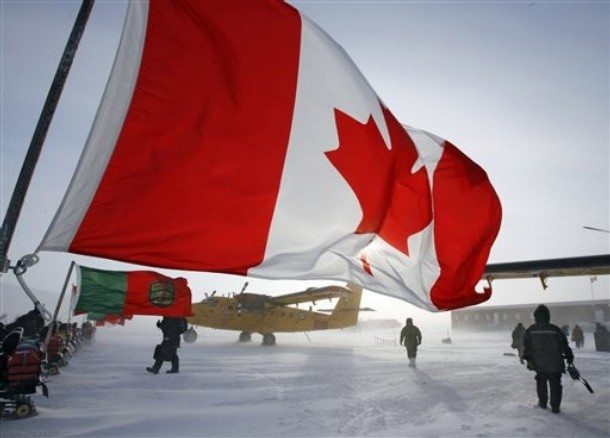An expert panel on Tuesday urged Canada to leverage hundreds of billions of dollars in planned defense spending to build up its defense sector, in order to bolster its economy.
In a report, the panel led by Tom Jenkins, a special advisor to Public Works Minister Rona Ambrose, calls for “using military procurement as an engine of economic growth, job creation, and socio-economic benefits.”
It suggests nurturing specific industries to support Canadian Arctic and maritime security needs such as surveillance satellites and military equipment “designed to operate in some of the most severe conditions on the planet,” or security software to counter new cyber threats.
The aim is to position the country to develop and market weapons, vehicles and other equipment to the rest of the world.
To date, Canada has mostly relied on foreign companies to share work with Canadian firms on major military procurements. But in worst cases, Canadians were reportedly left with the more menial work.
Ambrose said the government will review the recommendations.
She told reporters the potential economic spin-offs are “huge” and that Ottawa must be “more strategic in equipping its men and women in uniform.”
Canada’s defense industry is already fairly large. It employs 70,000 people and earned nearly Can$12.6 billion in 2011, but according to the report “there is room to grow.”
The Canadian government in 2008 announced a plan to invest Can$240 billion to equip its land, sea and air forces over 20 years.
The Jenkins report said this presents a “unique once-in-a-century opportunity to create jobs and growth, while enhancing sovereign capability.”
Jenkins told reporters that Canada has “not seen in 60 years” such massive expenditures on military equipment including ships, fighter jets and tanks.
Several contracts have already been awarded or are in progress, but “many others are forthcoming and represent the potential for a very substantial long-term economic benefit for Canada,” said the report.
It notes, however, that the United States is expected to cut military spending by 25 percent in the coming years, while NATO allies in Europe will trim defense spending by almost five percent.
This could mean less potential business abroad for up-and-coming Canadian arms producers.











